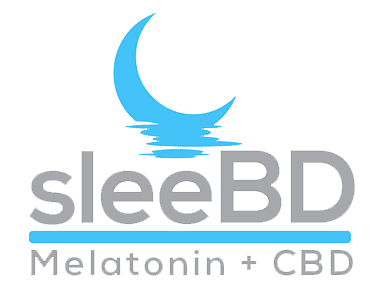cbd, health, sleep, Uncategorized
CBD for Anxiety: What Do I Need to Know?
CBD has gotten quite the buzz lately (no pun intended). It’s suddenly being stocked on the shelves of every health food store, and it seems like CBD producers have no shortage of creative ways to mix it into foods and drinks. According to them, it can treat a laundry list of health problems, including anxiety. So are they right?
Let’s take a look at the evidence on CBD for anxiety.
What is CBD?
CBD stands for cannabidiol. It’s one of many chemicals found incannabis sativa plants, a species that includes hemp and marijuana. Another chemical found in these plants is tetrahydrocannabinol (THC) which is responsible for the “high” associated with marijuana. Many, but not all, CBD products are extracted from hemp plants. The amount of THC in hemp tends to be very low, whereas in marijuana plants it can be much higher.
In recent years, CBD has been marketed as a treatment for a number of medical conditions, including:
However, the FDA has only approved one CBD medication, Epidiolex, for the treatment of two severe forms of epilepsy: Lennox-Gastaut Syndrome and Dravet Syndrome. It also approved the medication for the treatment of seizures associated with tuberculosis sclerosis complex.
CBD is being studied as a treatment for other conditions but has not been approved as a treatment yet.
So, can CBD help anxiety?
At this time, it’s not clear how CBD treats anxiety. Some research has shown that it may work by affecting serotonin levels in the brain. Serotonin is a chemical in your body that plays a role in your:
-
Mood
-
Sleep
-
Digestion
-
Behavior
Research suggests that increasing serotonin levels can help treat anxiety. Certain medications, such as antidepressants, work by regulating serotonin levels, and some studies suggest that CBD may work similarly to antidepressant and anti-anxiety medications.
Can CBD help fight depression?
There’s some evidence that CBD may help with depression. But there haven’t been many studies on humans. More research is needed to say for sure. Researchers think that CBD may treat depression and anxiety in the same way: by altering serotonin levels.
CBD may be safe to take with antidepressants, but check with your healthcare provider first.
What does research say about CBD and anxiety?
Due to CBD’s rising popularity, a number of studies have examined it as a treatment for anxiety.
-
A 2011 study showed that CBD reduced anxiety and discomfort during public speaking in people with social anxiety disorder.
-
Another 2011 study found that CBD reduced anxiety symptoms in people with social anxiety disorder.
-
A 2015 review of 49 studies found evidence that suggests CBD could help with generalized anxiety disorder, panic disorder, social anxiety disorder, obsessive-compulsive disorder, and post-traumatic stress disorder (PTSD).
-
A 2019 study found that out of 11 patients with PTSD, 91% experienced reduced symptoms after taking CBD.
-
A study in 2019 used CBD to treat people who were struggling with anxiety and sleep. Almost 80% of people’s anxiety improved, and almost 70% reported improved sleep in the first month, but the results for sleep varied over time.
-
A 2017 study didn’t find any evidence that CBD improved anxiety or paranoia, and it actually increased anxiety in some people.
These results are generally positive, but there are a few things to keep in mind. First, many of these studies have small sample sizes (even the ones with negative results). So the results don’t necessarily represent the general population. Second, these studies don’t look at the long-term effects of taking CBD for anxiety. This means we aren’t sure if taking the drug over time consistently reduces feelings of anxiety.
At what dose should I take CBD for anxiety?
There’s no known CBD dose for anxiety. Studies have found that doses of 300 mg to 600 mg reduce anxiety in people with social anxiety disorder. But more research is needed to determine an effective dose.
When it comes to how to take it, there are many different forms and products that CBD comes in, including:
-
Oils
-
Capsules
-
Drops
-
Teas
-
Vapor
-
Candies
You can even get a shot of it in your latte.
Unfortunately, because these products are not monitored by the FDA, there’s no uniform labeling system or seal of approval you can look for to make sure these products are safe. States may monitor them, but the regulatory system is patchwork and hasn’t kept up with the increasing popularity of CBD.
What are the side effects of CBD?
Studies have found that CBD causes few side effects. But people treated with Epidiolex (which is nearly 100% pure CBD) experienced side effects such as:
Will it get me high?
If the CBD is pure, you shouldn’t get high.
CBD and THC both act on the same receptors in your brain (cannabinoid receptors). But THC is thought to act on these receptors to a much greater degree than CBD, which causes the changes in thinking and perception associated with marijuana.
Additionally, the World Health Organization found that CBD does not appear to be habit-forming or cause the type of dependence seen with drugs of abuse.
